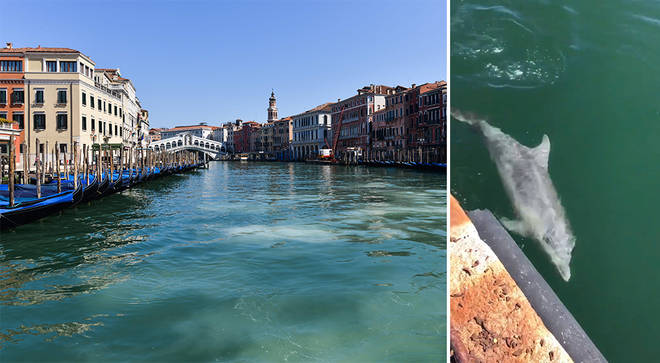At some point during the past 2 years we have all been impacted by the detrimental effects of the Covid-19 pandemic. Governments worldwide are suffering from the pressures of trying to cope with overcrowded healthcare facilities, business closures and the millions of workers who are suffering from the loss of employment. Although Covid-19 may be seen overall as a negative topic, the pandemic also provides us with an opportunity to come together to build a more sustainable and resilient future for our planet. We now have the chance to work on our urban communities to make them more environmentally friendly and improve the quality of life for its inhabitants.
In light of the pandemic, Covid-19 provided us with the opportunity to help improve the quality of life in urban living conditions, from environmental pollution, employment issues to inequality, the size and scale of our cities contain plenty of concerns that impact its people. Covid-19 has caused our cities to come to a standstill which was quickly followed by the return of the natural world to these once busy, combust areas for example the return of dolphins into the gulf and canals of Venice (Brunton 2020).

It is critical for our leaders and governments to integrate environmentally friendly solutions for building back greener, such solutions can also include methods of reducing climate change impacts. The United Nations conducted a policy brief which examined the impacts of Covid 19 on cities with emphasis being placed on reducing inequalities and and promoting green economic recovery (United Nations, 2020). Issues such as poorer air quality and water contamination are environmental conditions that pose as a threat to urban communities and can also cause problems for the economy of such areas. Providing clean drinking water, improving air quality and providing clean and affordable energy to families in urban communities needs to be focused on by governments in order to improve the quality of life in city regions.
Transport services need to be reduced as during the lockdowns the lower number of vehicles seen on roads greatly reduced air pollution. It is important for authorities to encourage workers to use public transport in order to commute to and from work. Walking and cycling should also be encouraged, many cities noticed the improvement of air quality due to reduced traffic on roads, such cities built additional walkways and cycleways as a means of promoting more environmentally friendly commuting. Alongside the environmental impacts of walking, it is also critical for our mental health, exercise and just for fun in general (Fulton, 2020).

Unemployment and poor living conditions both contribute to decreasing the quality of life for people in urban communities. More employment opportunities need to be discovered to improve incomes of people suffering from lack of employment. “Air pollution leads to 7.3 million premature deaths globally, with 4.3 million of these deaths coming from household air pollution” (Breathelife, 2016).
Covid 19 disrupted the progress of achieving the sustainable development goals but it also allowed us to become aware of the different ways of life our urban communities can start to use as a method of improving living conditions. The Pandemic provided us with an opportunity to tackle environmental issues such as improving air quality and reducing the levels of water contamination by focusing on public health and greener methods of living in urban communities.
References
BreatheLife (2016), The Equation is Simple. Health + Air Pollution = Climate. Retrieved from https://breathelife2030. org/wpcontent/uploads/2018/08/airpollutionpamphlet0818.pdf
Brunton, J. (2020), ’Nature is taking back Venice’: wildlife returns to tourist-free city, The Guardian, March 20th, 2020.Retrieved from (https://www.theguardian.com/environment/2020/mar/20/nature-is-taking-back-venicewildlife-returns-to-tourist-free-city). Fulton (2020), How the Covid-19 Pandemic will change our cities, Retrieved from: (How the COVID-19 pandemic will change our cities | The Kinder Institute for Urban Research (rice.edu) UN environment programme, United Nations (2020b), Policy Brief: COVID-19 in an Urban World. Retrieved from (https://www.un.org/sites/un2.
un.org/files/sg_policy_brief_covid_urban_world_july_2020.pdf)